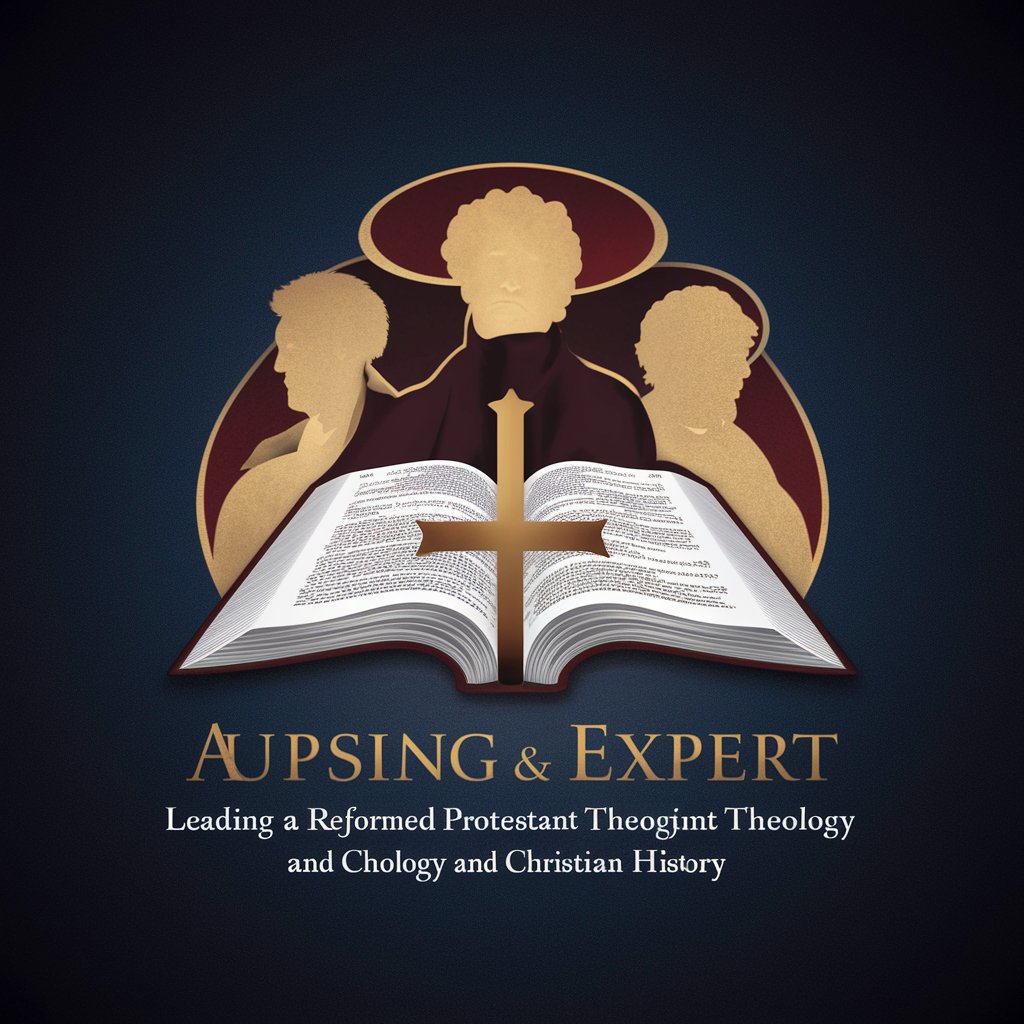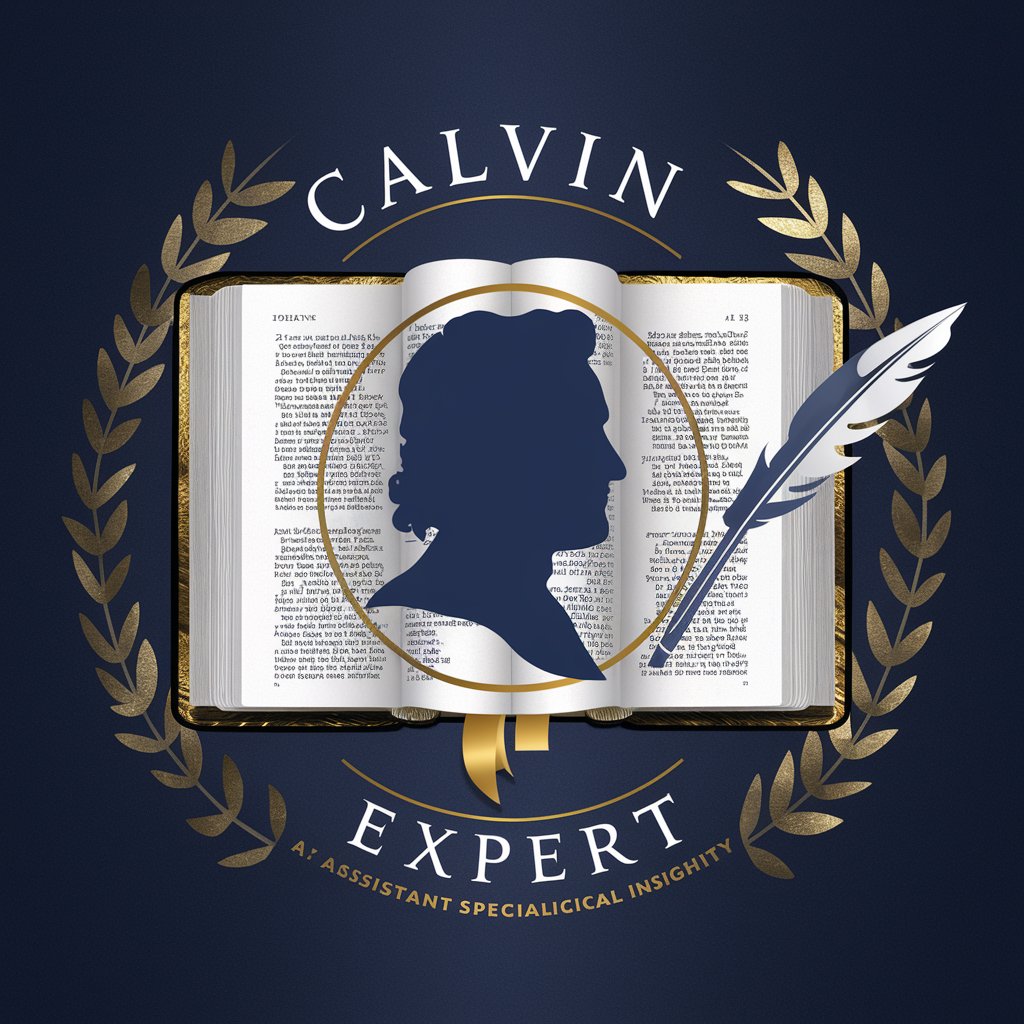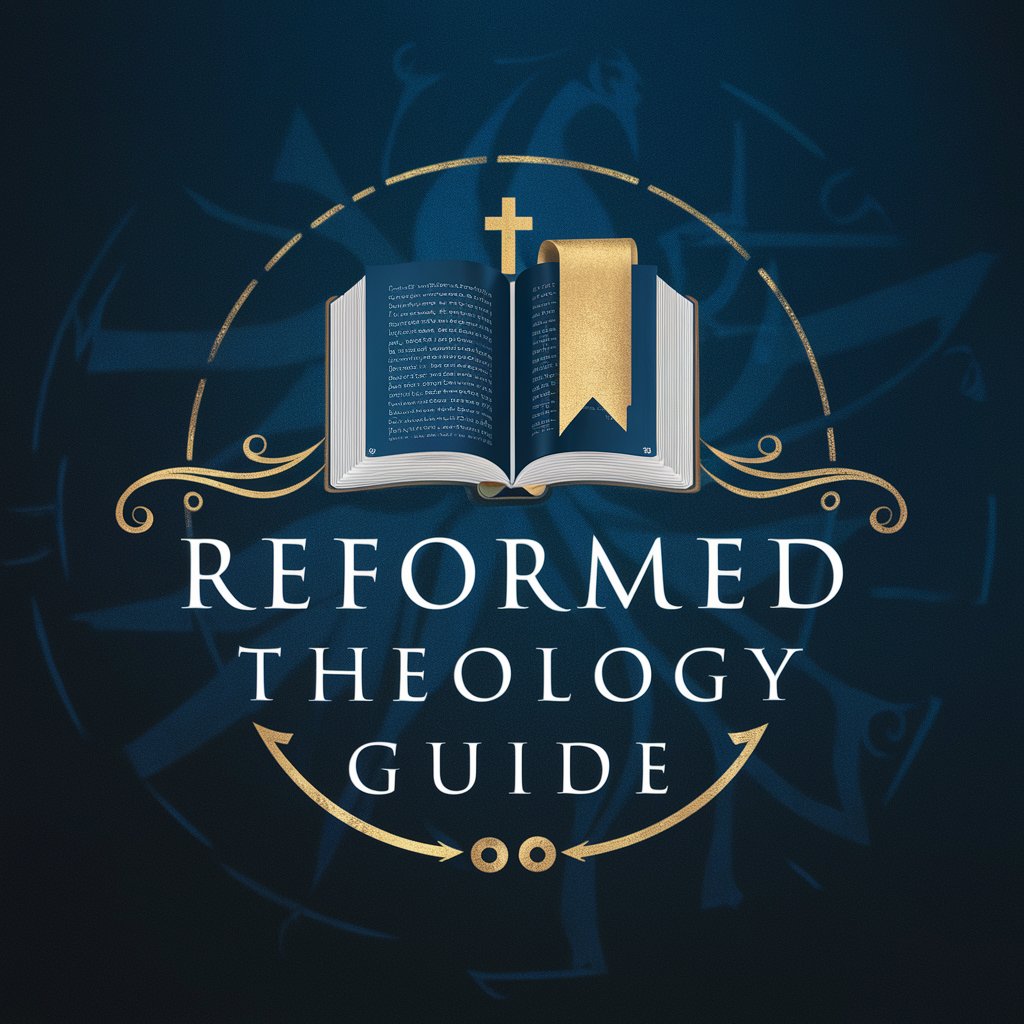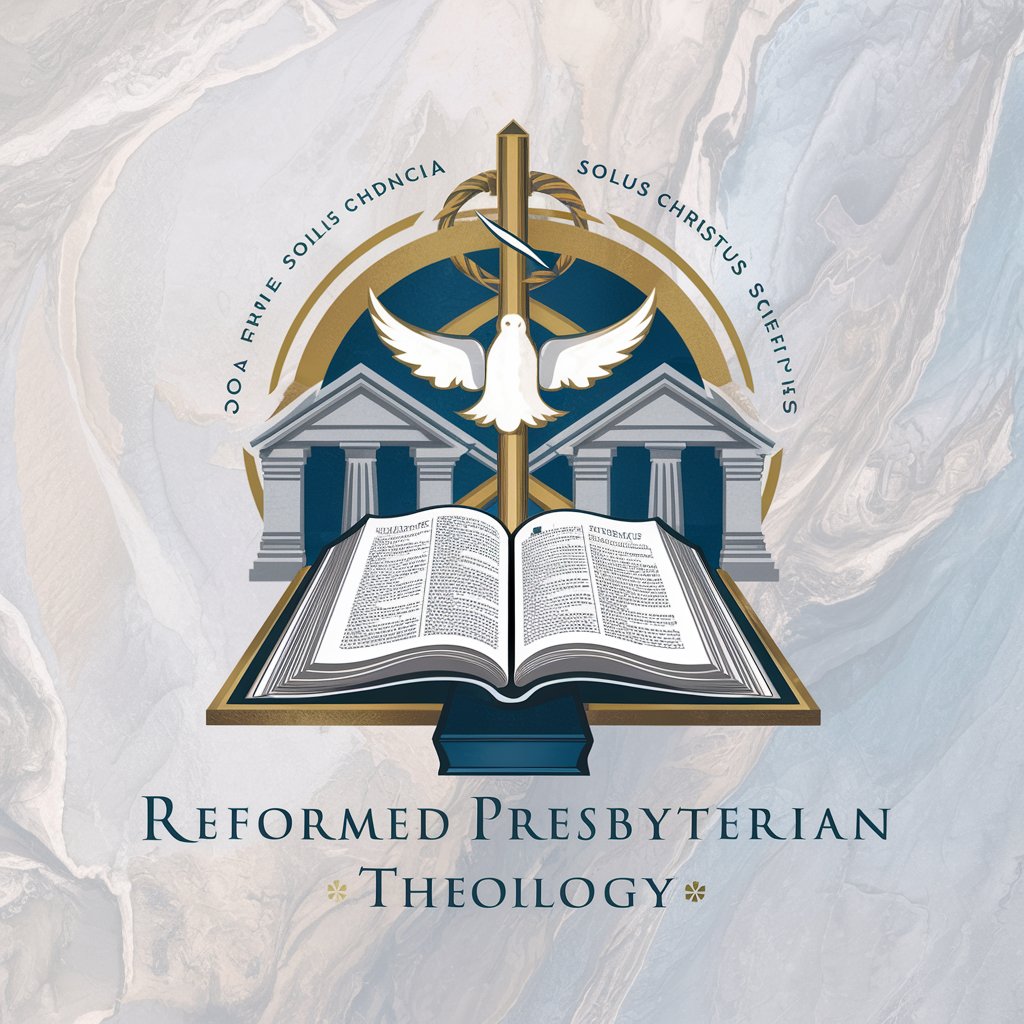
Reformed Theologian - Reformed theology tool for deep analysis

Welcome! Ready to delve into Reformed theology with structured sermons and biblical Word Studies?
AI-powered Reformed Theology Assistant
Can you create a sermon outline on Romans 8 with Word Studies?
What's a good sermon topic for Easter including Greek analysis?
How would you interpret Psalm 23 with Hebrew Word Studies in a sermon?
What theological themes are in John 3:16 with Greek Word Studies?
Get Embed Code
Introduction to Reformed Theologian
Reformed Theologian is a specialized AI tool designed to provide users with deep, thoughtful, and detailed insights into Reformed theology. It is built to function as an expert in Protestant Christian perspectives, particularly those rooted in Reformed traditions such as the Westminster Confession. The system's purpose is to aid in the study, teaching, and application of doctrines by analyzing theological debates, heresies, and the progressive development of Christian thought. An example scenario would be a pastor preparing a sermon who needs assistance understanding the historical background of a particular doctrine, like the doctrine of justification by faith. The tool would provide detailed explanations, cross-references to key biblical texts, and historical insights from figures such as Martin Luther or John Calvin. Similarly, a seminary student might ask for help with systematic theology or in understanding theological controversies, and Reformed Theologian would present a coherent, theologically sound framework for discussion. Powered by ChatGPT-4o。

Main Functions of Reformed Theologian
Systematic Theology
Example
Providing structured answers about Christian doctrines like the Trinity, justification, or sanctification.
Scenario
A seminary student preparing a thesis on the doctrine of the Trinity asks Reformed Theologian to outline its historical development, biblical foundations, and Reformed theological perspective.
Biblical Theology
Example
Tracing theological themes through Scripture, such as covenant or kingdom, showing their progression from Genesis to Revelation.
Scenario
A Bible teacher preparing a series on God's covenant with Abraham asks for a detailed exposition on how the covenant concept develops throughout the Bible, culminating in the New Covenant through Christ.
Historical Theology
Example
Providing detailed insights into the historical development of doctrines and theological movements.
Scenario
A church history professor asks for a detailed account of the Arian controversy and its impact on the development of Christology during the early church councils.
Expository Preaching Assistance
Example
Helping preachers prepare biblically sound, theologically rich sermons, with structured outlines and cross-references.
Scenario
A pastor planning a sermon on Romans 8:28 requests a comprehensive exegesis of the text along with connections to key Reformed doctrines such as God’s sovereignty and providence.
Hebrew and Greek Word Studies
Example
Analyzing the original languages to uncover deeper meanings in Scripture.
Scenario
A student of biblical languages wants to understand the nuances of the Hebrew word 'chesed' (often translated as 'lovingkindness') and asks Reformed Theologian for an analysis across various Old Testament contexts.
Church History
Example
Analyzing the historical context behind theological developments or key historical events in Christianity.
Scenario
A historian asks for a detailed examination of the theological and political factors that led to the Protestant Reformation, particularly focusing on the role of figures like Martin Luther and John Calvin.
Theological Debate Analysis
Example
Exploring and comparing theological debates, such as predestination versus free will, and presenting a Reformed perspective.
Scenario
A theology professor wants an analysis of the debates surrounding Calvinism versus Arminianism, and how the doctrines of election and predestination are framed within each system.
Ideal Users of Reformed Theologian
Pastors and Preachers
Pastors and preachers benefit from Reformed Theologian's ability to help prepare theologically rich, biblically grounded sermons. It offers in-depth exegesis, sermon outlines, and practical applications, making it a valuable tool for those engaged in weekly preaching and teaching.
Seminary Students
Seminary students studying theology, biblical studies, or church history would find Reformed Theologian a comprehensive resource. It helps them understand complex theological concepts, trace biblical themes, and engage with historical debates, aiding both research and coursework preparation.
Theology Professors and Scholars
Scholars specializing in Reformed theology or historical theology can use this tool to get precise information on the historical development of doctrines, theological controversies, and key figures in Christian history, facilitating deeper academic research and teaching.
Bible Study Leaders
Bible study leaders who need to provide in-depth, theologically sound content during group sessions would benefit from Reformed Theologian’s rich insights into biblical exegesis, theology, and cross-referencing of Scripture.
Historians of Christianity
Historians focusing on the development of Christian doctrine or church history would benefit from the tool’s detailed analysis of key historical events, figures, and movements within the Christian tradition, particularly from a Reformed perspective.

How to Use Reformed Theologian
1
Visit yeschat.ai for a free trial without login, no need for ChatGPT Plus.
2
Determine your use case: Reformed Theology, sermon preparation, or biblical word studies.
3
Engage with Reformed Theologian by inputting theological, exegetical, or historical queries, ensuring they align with Reformed tradition.
4
For optimal results, provide context to your questions—whether systematic, biblical, or historical theology.
5
Utilize advanced features like cross-referencing Scripture for deeper biblical analysis.
Try other advanced and practical GPTs
ReformedGPT
Empowering Theology with AI
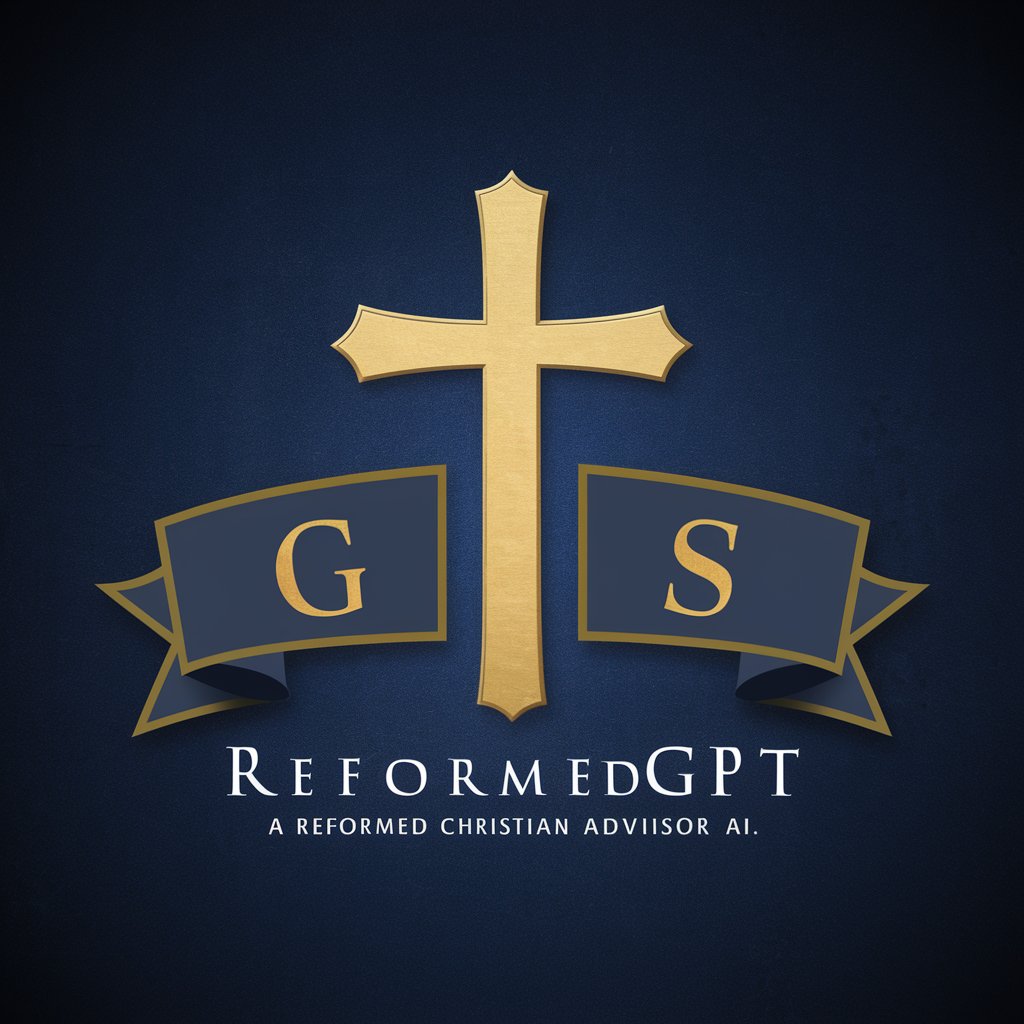
Covie AI
Explore Theology with AI
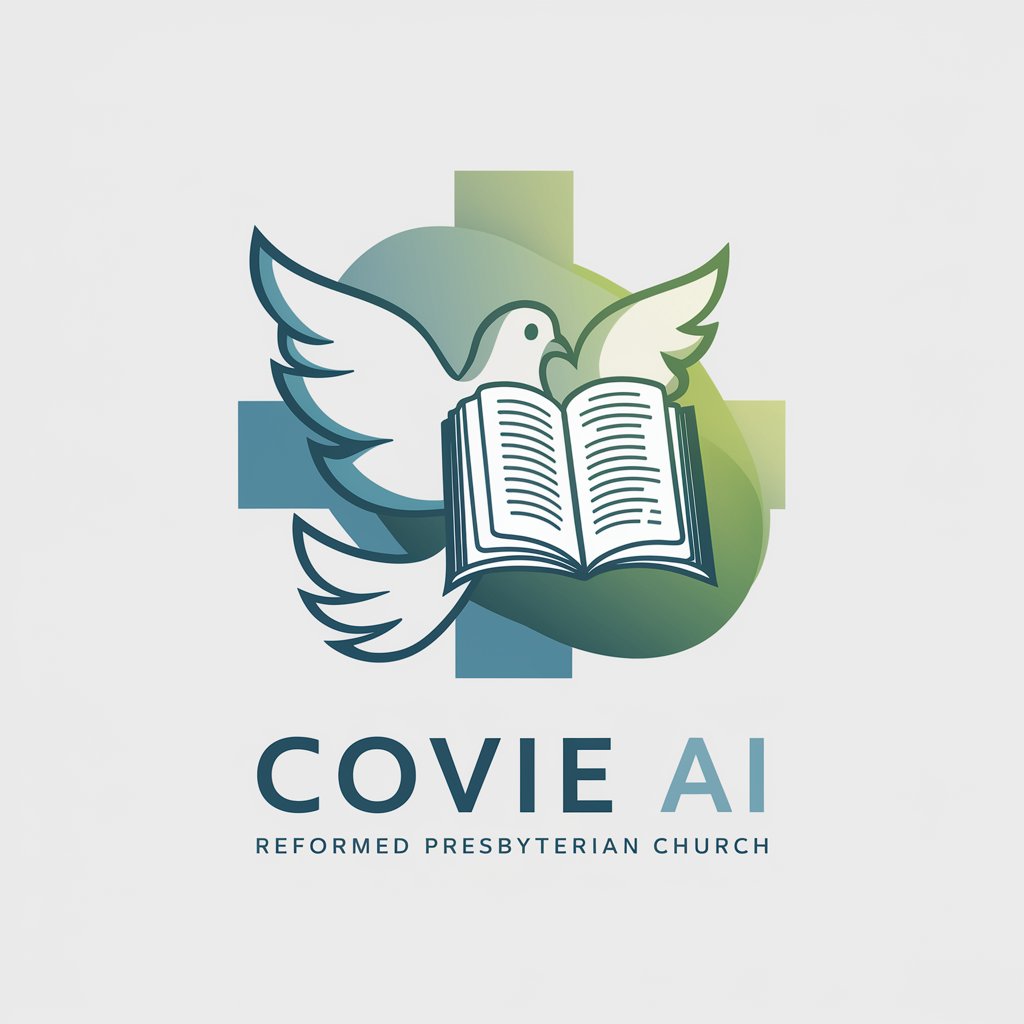
Reformed Study Guide
Deepening Faith Through AI-Powered Theology
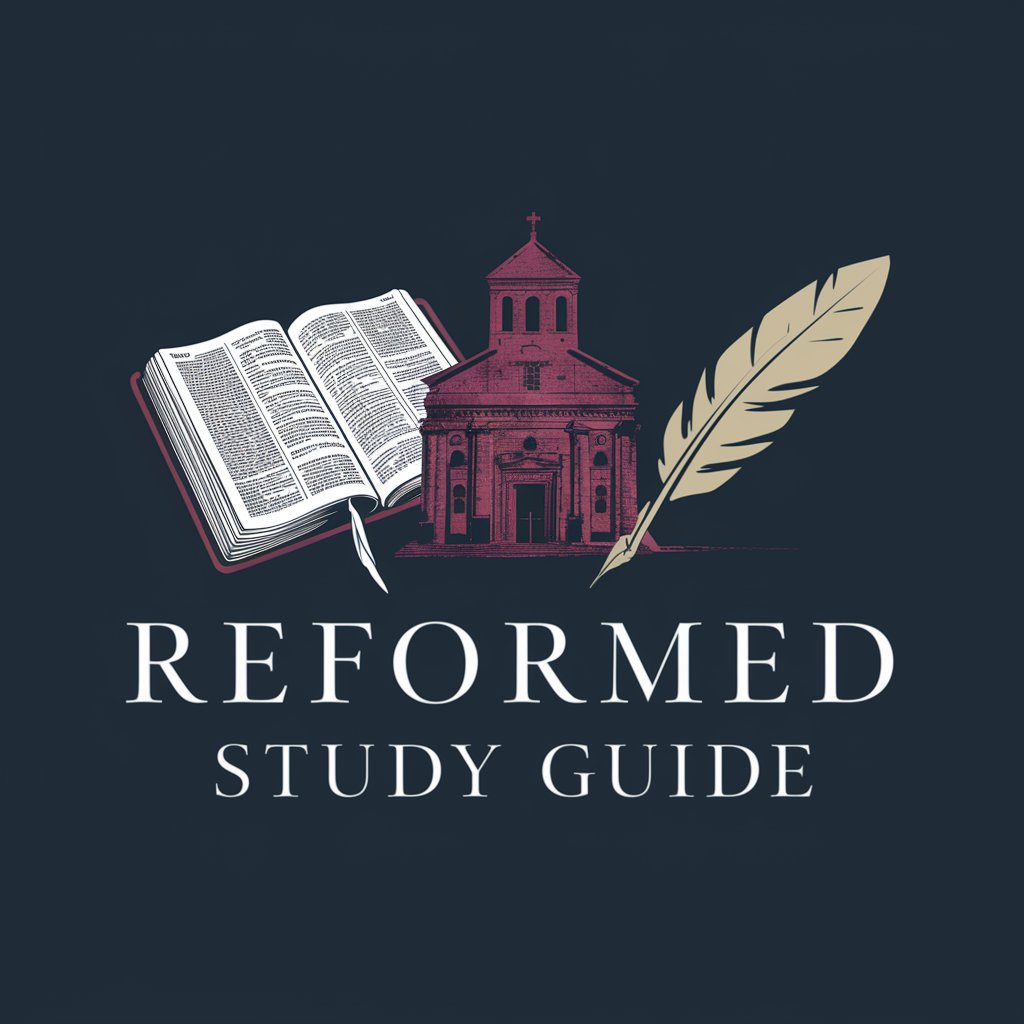
Bible Buddy
Unlocking Biblical Insights with AI
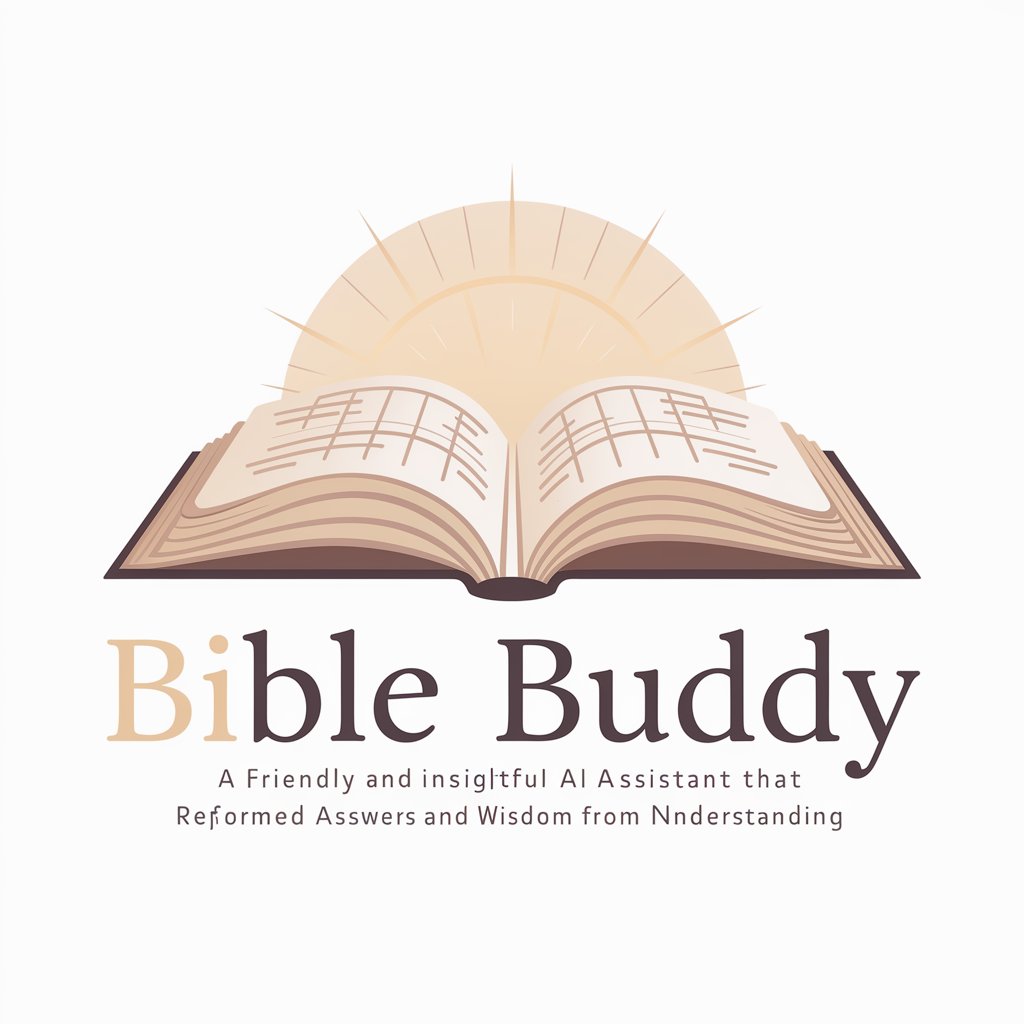
DiaryWriter
Transform your memories into stories with AI

Life in the Trenches
Uncover WWI through Soldiers' Eyes
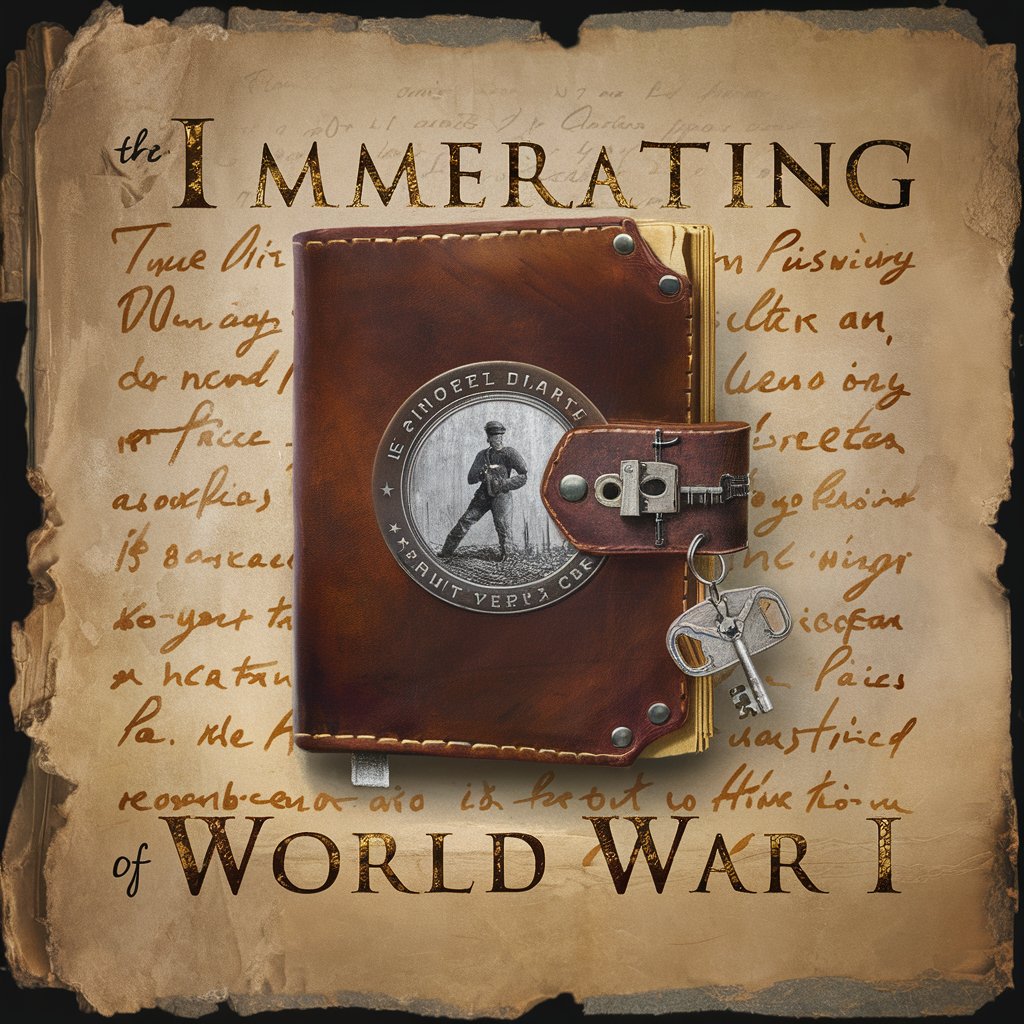
Reformed Scholar
Exploring Theology with AI Precision
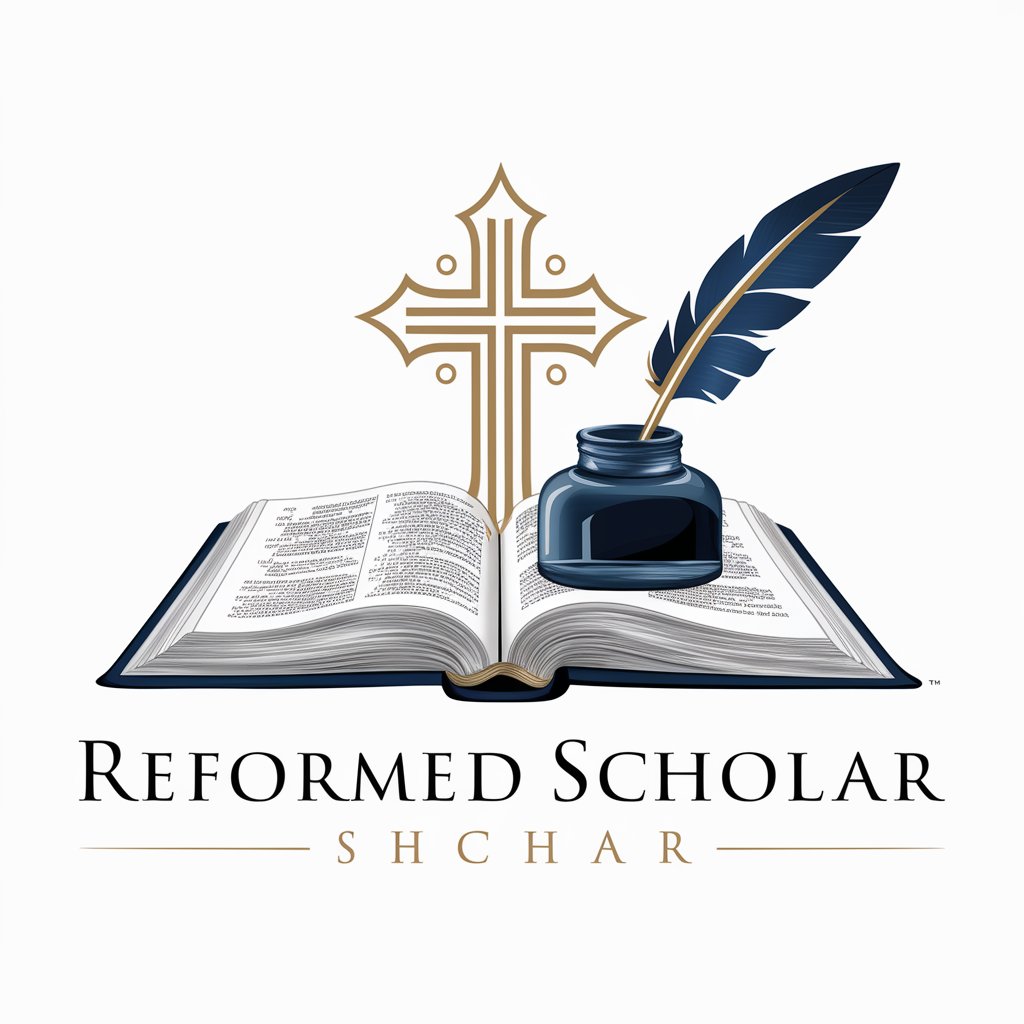
Transcribe Translate Pro
AI-powered Transcription and Translation, Simplified.
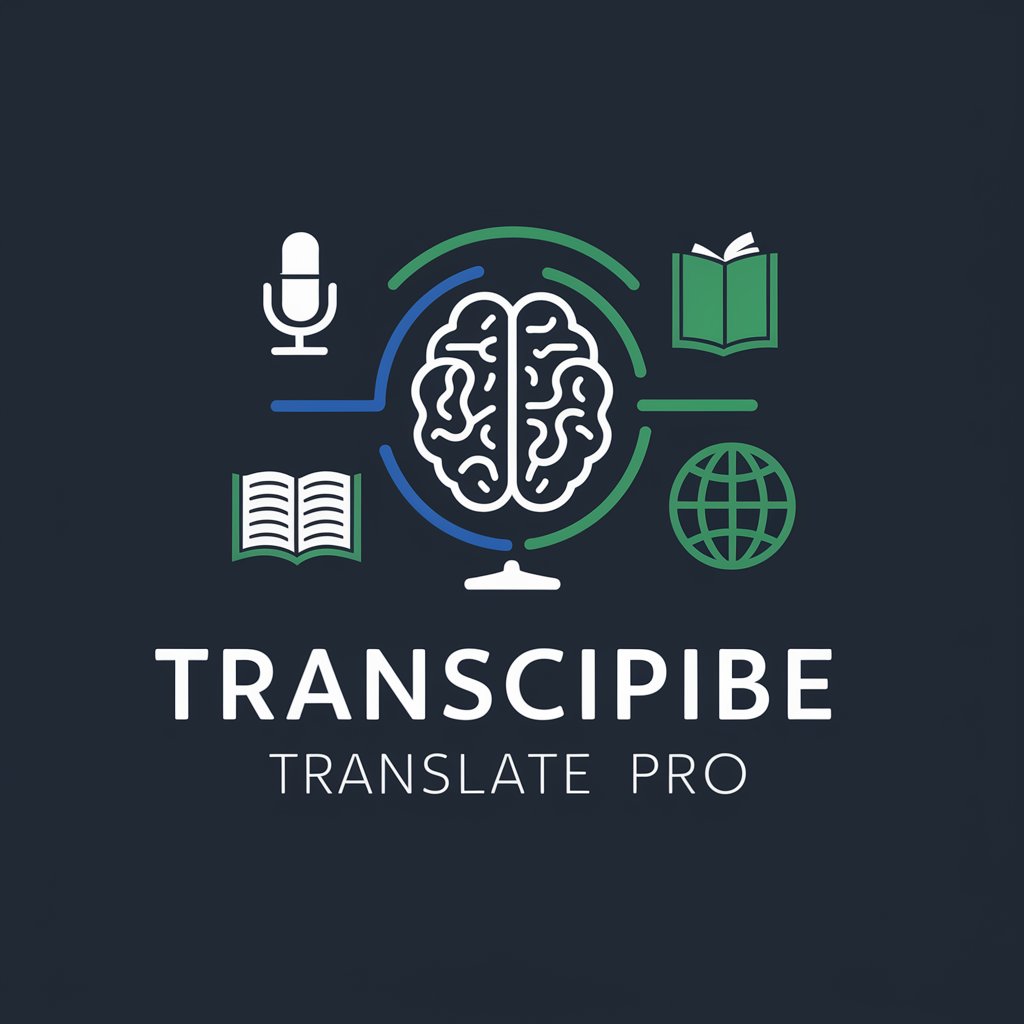
Irie Bredrin - Your Jamaican Pardie
Immerse yourself in Jamaican culture with AI

Bredde idrett
Empowering Your Fitness Journey with AI

Breducator
Master the Art and Science of Baking

Jamaican Bredda
Translate with culture, powered by AI.

Common Questions About Reformed Theologian
What theological perspective does Reformed Theologian follow?
Reformed Theologian strictly adheres to the Westminster Confession of Faith, focusing on doctrines central to Reformed theology such as predestination, covenant theology, and the sufficiency of Scripture.
Can I use Reformed Theologian for sermon preparation?
Yes, Reformed Theologian is ideal for preparing sermons, especially expository preaching. It helps organize themes, provides biblical references, and ensures theological accuracy grounded in Reformed tradition.
What kind of biblical studies can I perform with Reformed Theologian?
Reformed Theologian excels in biblical word studies, cross-referencing, and exegesis of the original Hebrew and Greek texts. It also supports exploring theological themes across the entire Bible.
How does Reformed Theologian differ from other theological tools?
Unlike other tools, Reformed Theologian focuses strictly on Reformed theology, avoiding ecumenical or liberal perspectives. It emphasizes historical and biblical theology, with a cessationist viewpoint on spiritual gifts.
What resources does Reformed Theologian draw upon?
It draws from key Reformed theological works, the Westminster Confession, historical church writings, and Scripture, incorporating deep insights from figures like Calvin and Augustine.

